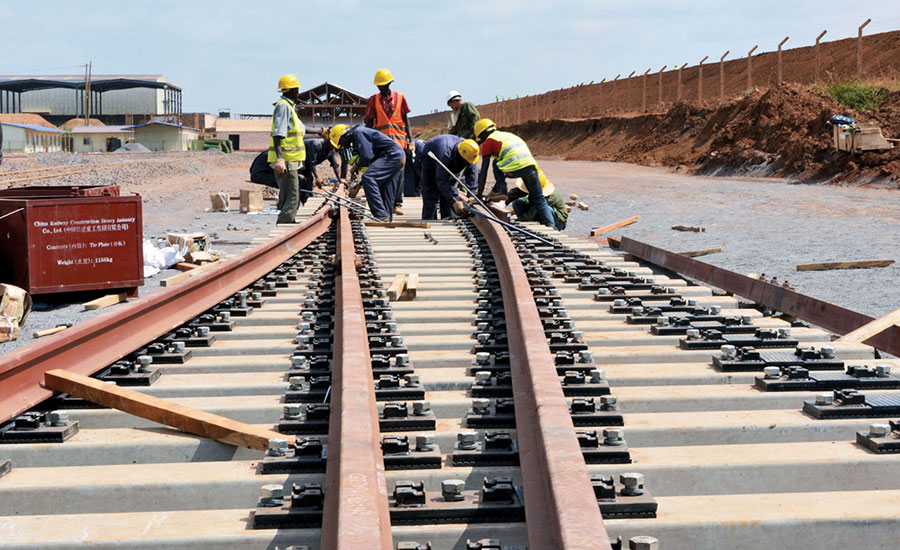China, which stunned western companies by expanding its footprint in Africa in the past decade to fuel its economic boom, is curtailing that construction investment as its economy cools off, according to figures released last month. Market observers now are debating whether the falloff could open new opportunities for western firms.
China government officials said last month that the country’s investment fell 40% to $1.2 billion in the first half of 2015, while the Infrastructure Consortium for Africa (ICA)—made up of G20 countries and multinational lenders—said in a Nov. 9 report that Chinese financial commitment to African infrastructure declined to $3.09 blllion in 2014 from $13.9 billion the year before.
“The significant reduction ... may indicate a recalibration of Chinese investments,” but it also reflects the “absence of large-scale road and railway projects, which attracted significant financial commitments in the previous years,” says ICA.
China Premier Li Keqiang had promised last year to push investments in Africa to as much as $100 billion by 2020. “Sometimes it is difficult to be precise when it comes to Chinese financing for Africa’s infrastructure projects because much of it is never in the public domain,” says Anil Bhandari, a Nairobi-based consultant and former World Bank advisor on Africa infrastructure. He attributes the drop in foreign direct investment to “the tightness in liquid cash, fall in foreign reserves and general slowdown in the economy.
Bhandari says the decline “does not affect projects already signed for financing but could cause substantial delay or cancellation of new ones.” ICA says about $7 billion of China’s 2013 investment was in Kenya and Ethiopia rail projects.
And last year, two of the largest Chinese financial investments were in transport projects: the $875 million expansion of the port of Abidjan in Ivory Coast and the $700- million construction of the Khartoum International Airport in Sudan.
A clearer picture was set to emerge at the Forum of China-Africa Cooperation in Johannesburg in early December, at which Chinese President Xi Jinping was to announce infrastructure investments to reassure nervous African leaders, says Robert L. Kuhn, a business consultant and commentator on China’s government-owned television.
There are different views on whether reduced investments from China will help western construction companies, who had earlier lost out to Chinese competitors on the price front.
“This does present a major opportunity for European and other western firms who will expand their operations in sub-Saharan Africa,” Graham Robinson, director of the London-based market forecasting firm Global Construction Perspectives, told ENR. “Rapid urbanization has thrown up demand for high-end construction. On the other hand, African governments are encouraging public-private partnership because they are short of funds. Western companies have advantage in these segments.”
A manager at an Israeli contractor that competes frequently with Chinese firms in Africa, but who requested anonymity, said signs of pullback would have a positive impact on its prospects.
But Deborah Brautigam, a professor of international political economy at John Hopkins University and director of its China-Africa Research Initiative, is not so sure about the competitive advantage for western firms. “It will be some time still before western construction companies can compete with Chinese firms; salaries of western expatriates are still far higher than Chinese expats,” she says. “If western companies try to hire locally, they [often] find that other firms and aid agencies have bid up salaries for talented African managers and engineers.” Bautigam says Chinese construction activity in Africa “is not declining,” with firms signing $13 billion in contracts in the first half of 2015.
Informed sources, however, say China is reevaluating its African investment strategy due to severe losses, as well as emerging opportunities in Europe and Latin America.
Losses include the spike in project costs during the Ebola crisis in west Africa, forced abandonment of investments after the Sudan breakup in 2011 and the costly emergency evacuation of 36,000 Chinese oil workers from Libya, also that year.
Some analysts still believe that reduced investments would hit the mining and energy sectors while sparing infrastructure in Africa.
Meanwhile, China confirmed last week that it was in talks with Djibouti on the Gulf of Aden in East Africa to establish a "logistic center" for its navy in order to fight sea piracy and assist the United Nations in its efforts to monitor the seas. The new base also will help Chinese ships, personnel and companies to better access remote parts of Africa and obtain more business and project contracts, sources said.
But the U.S. Navy said China was trying to create a base for intelligence gathering and for enhancing its military influence in the area.




